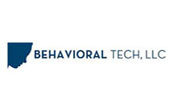EATING DISORDERS
Because eating disorders are life threatening diseases, we use treatment methods supported by research showing the strongest evidence for effective results. The most compassionate care is treatment that works. We won’t provide anything less – it’s what you should demand.
We take a team approach to treatment that fights the disease and supports the individual using behavioral therapies, such as Cognitive Behavioral Therapy – Enhanced (CBT-e), Dialectical Behavioral Therapy (DBT), Maudsley or Family Based Therapy (FBT), nutritional support and referral to a network of medical and psychiatric treatment providers. These treatment methods incorporate a nonjudgemental stance that does not seek to explain why someone has developed an eating disorder as science has not yet provided an answer to that question. Instead, we devote our resources to validating the person and/or the family’s suffering, understanding how the disease has impacted the individual’s life and using a variety of powerful resources to renourish the mind and body.
DBT and DBT Consultants for Eating Disorders
DBT, as developed by Marsha Linehan, is an evidenced based treatment that integrates the power of CBT tools aimed at changing feelings, thoughts and behaviors, with mindfulness therapy and skills, designed to foster an attitude of acceptance as well as the ability to cope with emotional pain. DBT is recommended for those who have experienced prior treatment failure and/or for those with co-occurring concerns like self-injury. It is a more structured and intensive form of therapy. We offer separate and adherent DBT for adults and adolescents with eating disorders. Please click here to read more about DBT and our DBT treatment team.
Maudesly or Family Based Treatment (FBT)
FBT is the gold standard of evidence based treatment for children and adolescents with eating disorders. Research indicates that recovery rates for FBT are approximately 75% compared with approximately 30% to 40% for treatment as usual. This is a manualized treatment developed to include parents in the care and recovery of their children. FBT providers take an agnostic view of cause – certainly biology plays a role and beyond that the research does not provide an explanation of why young people develop these deadly illnesses. What FBT providers know is that no one chooses to have an eating disorder and families don’t cause eating disorders.








